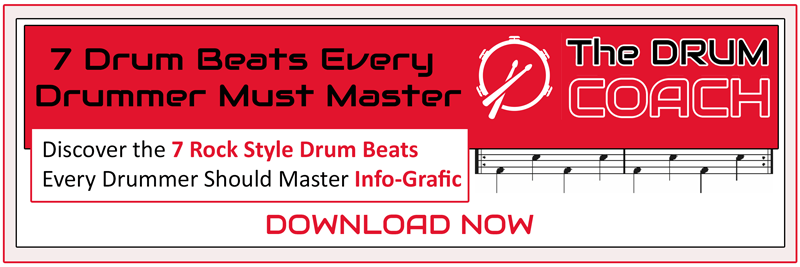Are you looking for the best place to buy a drum kit? Whether you’re a beginner or ready to upgrade, I’ll share some great options and what to consider before making your purchase. Stick around, because these tips can save you money and ensure you get the perfect kit for your needs!
Today, we’re tackling a big question for anyone starting their drumming journey or looking to upgrade: Where’s the best place to buy drums? With so many options out there—local shops, second-hand markets, and online stores—it can be overwhelming to decide. I’ll guide you through some of the best choices, share some alternatives, and give you tips to make the right decision based on your budget and needs. Let’s dive in!
The best place to buy a drum kit really depends on your situation, experience level, and preferences. And of course, your budget. Let’s break it down.
For beginners, the local music shop is often the best starting point. Why? When you buy from a trusted local store, you gain access to a personalized service experience. If you have questions or run into problems with your drum kit, the shop staff can help you troubleshoot and resolve issues. Plus, you can try out kits in person, which is invaluable for understanding how they feel and sound.
Now, let’s talk about pricing. Beginner drum kits have become incredibly affordable when bought new, so you’re unlikely to save much by going second-hand—unless you’re looking at mid-range or higher-quality kits. If that’s your goal, expanding your search to include pre-owned options can unlock some great deals.
For second-hand kits, here are some key places to check:
- Local Second-Hand Stores: These are great for finding hidden gems, especially if they cater to musical instruments. You are then more likely to find a second hand drum kit in your budget.
- Charity Shops: You might stumble across a great deal, though this can be hit or miss.
- Online Marketplaces: Websites like eBay, Gumtree, and even Facebook Marketplace are goldmines for second-hand kits. Just be sure to inspect the gear thoroughly or ask detailed questions before committing.
- Craigslist: yes, it’s still going strong in many areas, Craigslist can connect you with local sellers for in-person transactions.
When buying second-hand, always check:
- The condition of the drum shells and hardware for cracks or dents. Vinyl covering pealing from the drum shells, and other defects.
- Whether the heads are worn out (these can be replaced easily but factor it into the cost).
- The quality and completeness of the kit—ensure all parts are included, like stands for hi-hats, snare drum and cymbals, pedals, and cymbals. Polus any tom-tom holders and legs.
For those who prefer the convenience of online shopping for new kits, websites like Sweetwater, Thomann, and Guitar Center offer extensive selections and detailed descriptions. Many of these stores provide free shipping and return policies, which can ease any concerns about buying without testing the kit first. However, keep in mind that you’ll miss the hands-on experience that a local store provides.
Lastly, if you’re looking for high-quality or custom kits, consider exploring specialized drum manufacturers and custom builders. Many of these companies offer direct sales or can guide you to trusted dealers.
My Own Experience.
Over the years I have owned a few drum kits. Mostly from local stores. But one of the most recent deals I did was as I played a Pearl expert kit in local clubs and theatres. Which incidentally, is an excellent starter kit. Or something similar would be great too.
I used to frequent a music store several times per month to buy sticks, drum heads and other accessories for the Pearl Kit. I used to direct other drummers, musicians, singers and artists to the store and I am sure they made a lot of money from my referrals. I didn’t get paid for sending people to the store. It was just something I did. I also let the drum deparment head know about it.
Then one day, I found a Yamaha Recording shell kit upstairs in the store room of the store. I asked about it and bought the shell kit for eleven hundred pounds. It was worth a lot more. I purchased it and added about two thousand pounds worth of cymbals to the kit over time. So, the moral of the story is. Get to know people in your local music store. You can at least bargain with the drum guy to get a sweet deal on a kit if you buy from them rather than buying a kit online.
Like anything else in drumming, you have to build relationships with the right people as I did. You are almost guaranteed a great deal when you do.
To sum up, the best place to buy drums depends on your budget and priorities. Local music shops are great for beginners seeking guidance, while second-hand options and online stores open up more variety for those looking to upgrade. No matter where you shop, remember to do your research and inspect your gear carefully if buying used.
And remember this. Drumming is first about learning to physically, scientifically, Or mathematically play the drums. It then becomes about sound quality. Making music and such. So your first kit doesn’t have to be a top-of-the-range Yamaha or other top-manufacturer kit. A pear export-grade kit is all you really need to get started and build your chops.
In the next post, we’ll answer another crucial setup question: How High Should I Set Up My Snare Drum, Toms, and Cymbals? I’ll guide you through the perfect heights and angles to maximize comfort and performance. Click the next post to get started!






